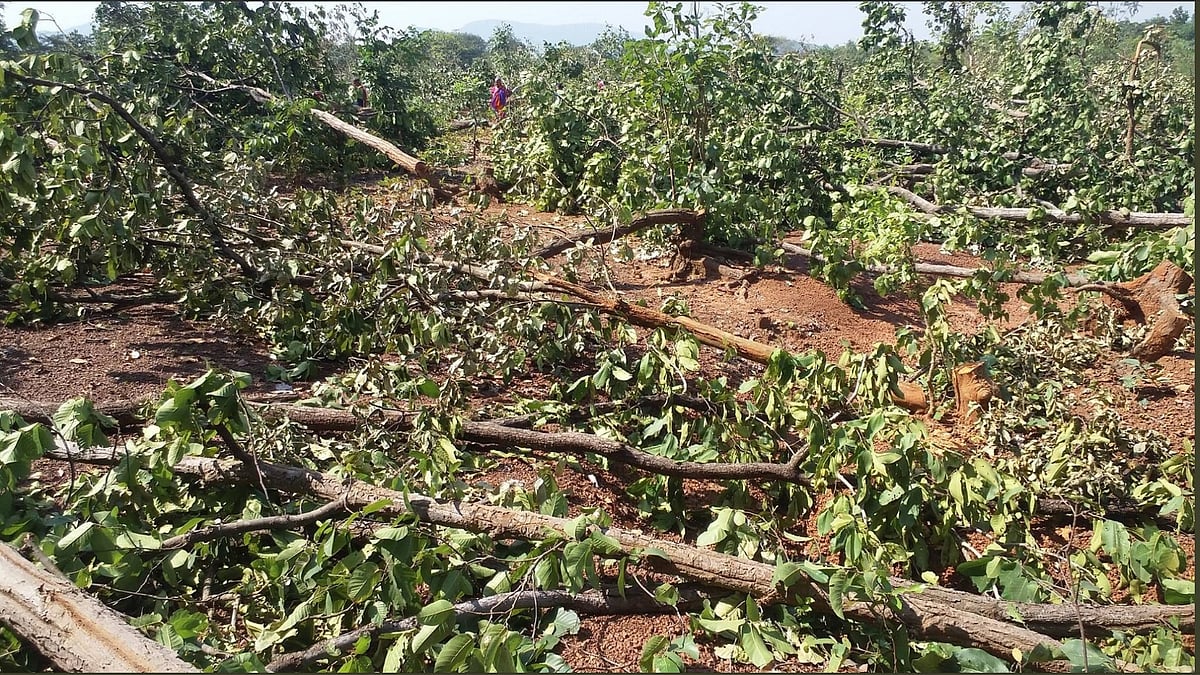State governments are vying with each other to attract companies exiting China in the wake of the pandemic. There are several 'pull factors' - infrastructure, physical and digital connectivity, skilled and/or cheap labour and raw materials, as well as minimal red tape and corruption, tax breaks and a stable political environment – but the main imperative is land.
Bloomberg reports that India will offer land “twice the size of Luxembourg” to multi-nationals relocating from China, in the form of immediate and inexpensive leases in its Special Economic Zones (SEZs). What's more, state governments have acquired vast industrial 'land banks' with the objective of attracting investors.
Having learnt from experience that nothing frightens potential investors more than the prospect of acquiring land for their projects, land banks have become integral to the industrial policies and ease-of-doing-business reforms of state governments. Thus, they are now in a position to make vast standalone tracts of land available for large industrial projects.
Behind the SEZs and land banks lies a troubled history of forcible expropriation and its deleterious impact on farmers: displacement, loss of livelihoods, and disruption of entire communities. Obviously, policy-makers are not deterred by the enormous social costs involved and continue to consolidate tracts of public and private land for industrial use.
The 'land bank' trend began in the 1990s but gathered force after the World Bank, in 2010, redflagged land acquisition as a major impediment to 'ease of doing business' in India. Given the fragmented nature of land holdings in India and the relatively high cost of tracts in peri-urban areas, aggregating land is a headache.
Accordingly, the World Bank recommended that land banks be created for the benefit of industry. The Confederation of Indian Industries (CII) echoed the suggestion in its “Ease of Doing Business in Northern Region Survey” of 2014. The 'Make in India' campaign launched by the Centre further accelerated the process.
The 2013 Right to Fair Compensation & Transparency in Land Acquisition, Rehabilitation & Resettlement (LARR) Act, with its many pro-farmer provisions, was seen as a major hurdle in this respect. The NDA government attempted to dilute these provisions through ordinances, but failed. However, since land is a concurrent subject, the states lost no time in subverting the spirit of the 2013 LARR Act through amendments, leaving farming communities and forest-dwellers vulnerable to draconian land acquisition policies.
Each state has its own approach and processes for creating land banks. Several states have done away with the social impact assessment and consent (of the community) clauses in the 2013 LARR Act. Some have sought to convert forest land and village commons for industrial use. For instance, in Odisha, 1,478 acres of revenue forest land have reportedly been converted to compensatory afforestation for industries. According to reports, even village cremation grounds and places of worship have been added to the land bank!
The 3,000 acres of land which fell vacant after the infamous POSCO project was aborted as a result of citizens' campaigns, is now part of Odisha's land bank. In contrast to the 2013 LARR Act, which provides for the return of unutilised land to the original owners, the state law allows such land to be transferred to the land bank. Other states have enacted similar rules.
A public interest litigation challenging the dilution of the 2013 LARR Act was filed in the Supreme Court in 2018. Meanwhile, in 2019, the Madras High Court struck down the Tamil Nadu government's attempts to acquire land by circumventing the 2013 LARR Act. The ball is now in the apex court, which has not been farmer-friendly of late.
State governments will be encouraged by the recent dilution of the 2013 LARR Act by the SC itself. A provision deeming land acquisition to have lapsed if the concerned agency failed to pay compensation or take possession of the landholding, which was upheld by the SC in 2014, was struck down in 2020. (The agency did not need to actually pay the landowner; it had only to deposit the money in the treasury.)
The significance of the SC order is that it dealt with a provision crucial to the spirit of the 2013 LARR Act: correcting a historical injustice against farmers, lakhs of whom were evicted from their lands without even the outrageously pitiful compensation offered under the 1894 law. In effect, the right to property, once a fundamental right, has been weakened.
The exercise of eminent domain by the states, when weighed in the balance with human suffering, is hard to justify. In this context, the appropriate use of public and expropriated lands is a moral imperative. Will the ostensible objectives of job creation and overall increase in prosperity and standards of living be met? One study on notified SEZs estimated that the number of jobs created would be barely 6 per cent of the approximately 1.14 million people displaced. Add to that the rent-seeking behaviour of a section of policy-makers and the picture is not encouraging.
The writer is a senior journalist with 35 years of experience in working with major newspapers and magazines. She is now an independent writer and author.









